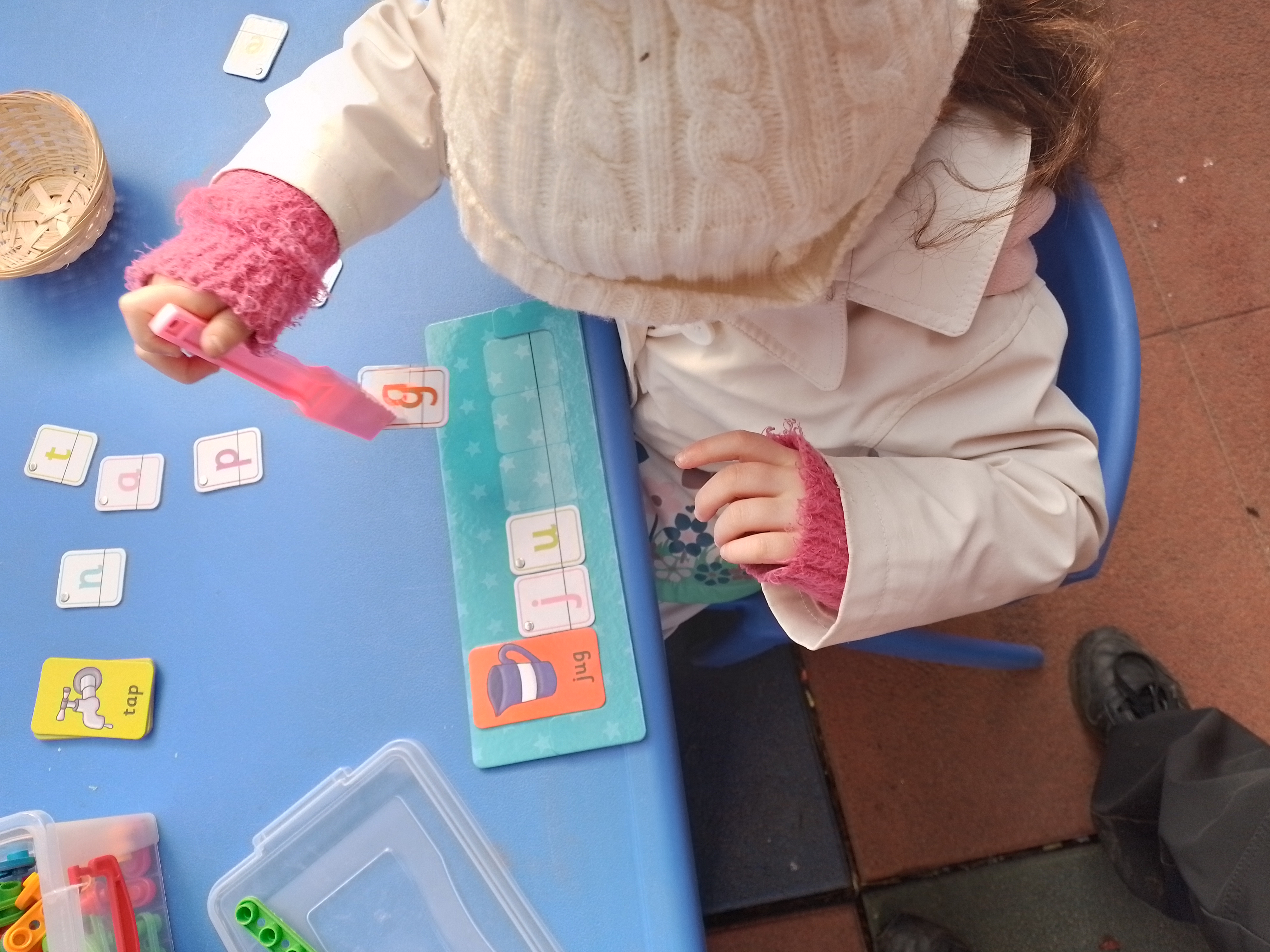
Phonics Learning
Phonics is an important aspect of early childhood education, as it forms the foundation of reading and writing skills. In Montessori education, learning phonics is often integrated into a child’s daily activities, using a variety of hands-on materials and techniques.
In Happy Kids Montessori classroom, the emphasis is on learning through experience and exploration. Children are encouraged to use their senses and hands to manipulate materials, which helps to engage them and make learning more fun and meaningful. For learning phonics, this means using materials that are tactile and interactive.
One popular of our most Montessori phonics material is the sandpaper letters. These are wooden letters that have been cut out and mounted on sandpaper. Children are taught to trace the letters with their fingers, feeling the texture of the sandpaper as they go. This helps them to learn the shape of the letters and the sounds that they make.
Another Montessori phonics material is the moveable alphabet. This is a set of letters that can be used to build words. Children are encouraged to create words using the letters, which helps them to understand how letters combine to form words and how the sounds of letters can be blended together to create words.
In addition to these materials, our Montessori teachers often use games and activities to reinforce phonics learning. For example, children might play a game where they have to find objects in the classroom that start with a particular letter sound. This helps them to associate the sounds of letters with real-world objects and situations.
One of the advantages of learning phonics in Happy Kids Montessori is that it is integrated into other areas of learning. For example, children might learn about animals and their sounds in a science lesson, and then use this knowledge to practice their phonics skills by identifying the letters that make up the sound of a particular animal. This helps to reinforce learning and make it more meaningful for the child.
In conclusion, learning phonics in our Montessori environment can be a fun and engaging experience for children. By using hands-on materials, games, and activities, children can learn phonics in a way that is interactive and meaningful. By incorporating phonics into other areas of learning, Montessori teachers can help children to develop a strong foundation for reading and writing skills that will serve them well in the years to come.